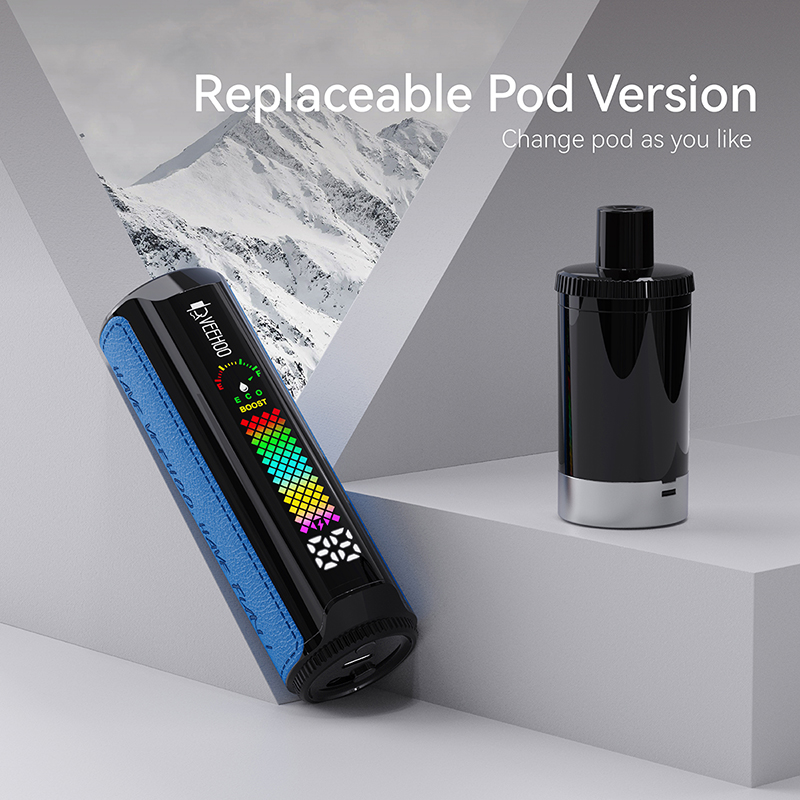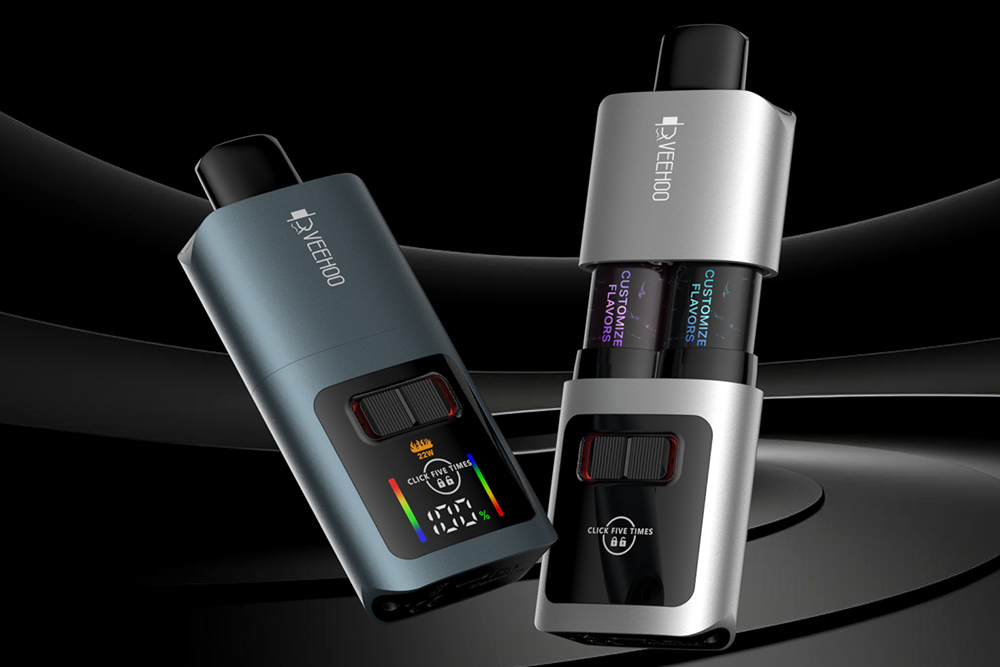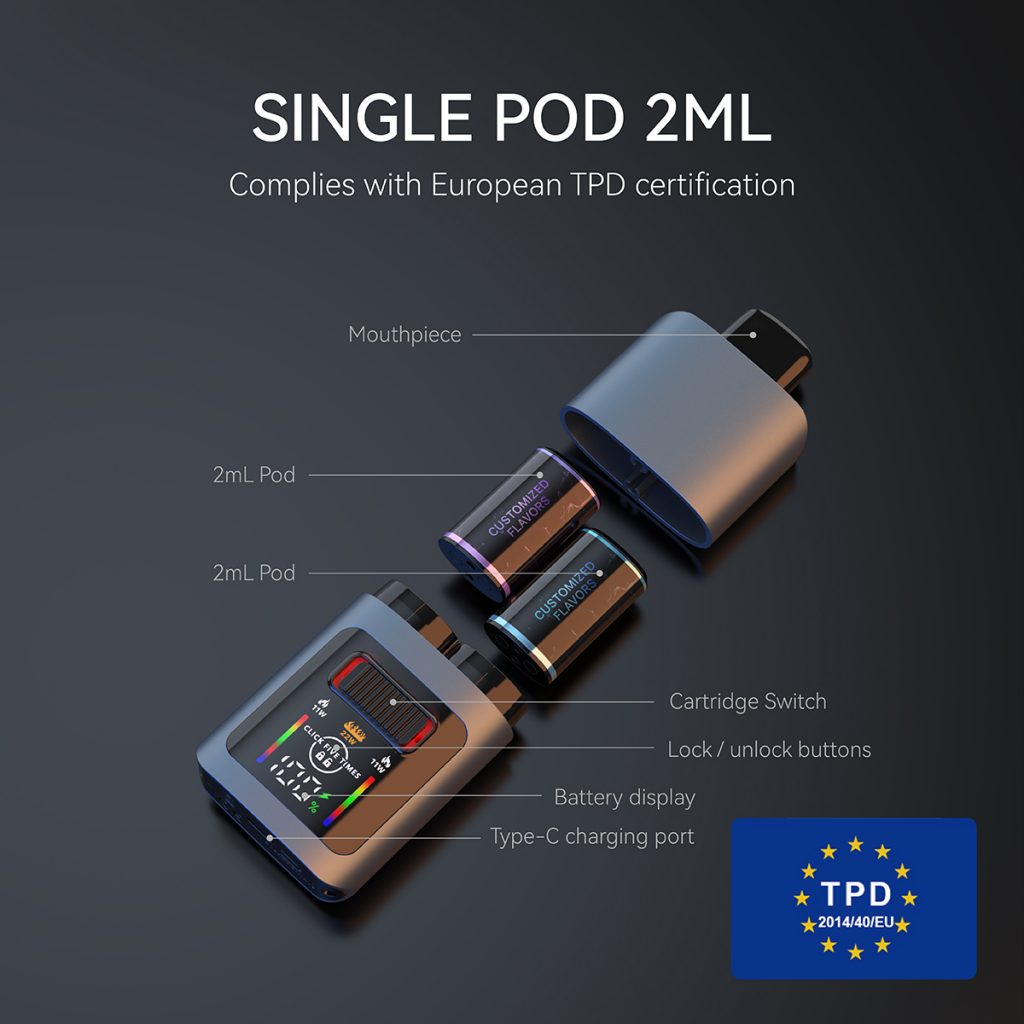According to Ojo Público on December 1, according to data from the Peruvian Tax and Customs Administration (Sunat), in the past six years, about 140 importers have introduced more than 30 vape brands, with a total import value of more than 20 million US dollars.
About ten years ago, major global tobacco companies announced that they had begun to transform to less risky “new tobacco” products. Their goal is to increase sales of vapes and other devices containing tobacco and nicotine, and reduce products such as cigarettes that are harmful to health due to combustion.
However, new brand products launched with this goal are still harmful and can be addictive. Ojo Público’s investigation found that Philip Morris International (PMI) has successfully expanded its market in Peru by maintaining traditional imports and introducing vape products.
Although PMI entered the Peruvian vape market late, imports of its own brand Veev reached US$311,000 between the beginning of this year and November. This represents 1.5% of the total volume of vapes that entered Peru over the past six years, making it one of the 11 largest importers during this period.

British American Tobacco (BAT) was one of the companies that entered the “smoke-free” space earlier at the national level. From 2022 to 2024, the import value of Vuse vapes exceeded $4 million, accounting for 20% of Peru’s total vape imports, making it the largest importer nationwide.
Currently, 35 countries in the world prohibit the sale of vapes. However, in the Peruvian market, more than 30 brands of vapes are already in circulation. In this area of relaxed market regulation, it is not just the big companies that profit, but there are as many as 137 importers engaged in the import of vapes and their refills, four times more than importers of traditional tobacco products.
Some of these companies are franchise stores, while others have begun to get involved in the vape business even if they are registered as restaurants or sports goods sellers in the records of the national tax department. This year, more than 30 brands of vape products have entered the Peruvian market in various forms and flavors.
British American Tobacco (BAT)
BAT’s vape brand Vuse vape liquid is manufactured in the United States, while the equipment is produced in China through Smoore International Holdings. In 2023, BAT’s global vape sales reached 654 million units, an increase of 7% over the previous year. According to the 2023 financial report, this business line, including other non-combustion products, has accounted for 16.5% of the company’s revenue. Vuse Go has entered 59 national markets, thanks to “positive regulatory progress” that has enabled it to enter emerging markets such as Colombia, Paraguay and Peru.
According to the report of the Organization for Economic Cooperation and Development (OECD), one thing these three countries have in common is that none of them bans the sale of vapes or imposes taxes to curb consumption. According to the 2023 Tobacco Industry Interference Index, Peru and Colombia also have a common feature that the tobacco industry interferes greatly when formulating public policies to combat tobacco consumption.

In the United States, one of the main markets for Vuse vapes, the sale of fruit-flavored products is not allowed. In Peru, where there are no such restrictions, BAT sells two vape products: the Vuse Go 5000 and Vuse Go 1000, which offer flavors such as watermelon, apricot and raspberry. This is despite Peru approving regulations on November 12 to ban the sale of flavored vapes to minors, which will take effect in 2025.
Philip Morris International (PMI)
Peru’s imports of Veev vapes were valued at $310,916 as of November 1. PMI’s vape brand Veev Now offers two models, with 500 and 1,800 puffs, respectively, and flavors including mint, blueberry, strawberry, watermelon and mango. According to information provided by PMI, the devices are manufactured by Kaival Brands Innovations Group in Florida, USA, while customs records show their origin as China. Kaival Brands told PMI that its Veeba and Veev Now products have seen record monthly sales. Both are part of the company’s “new tobacco” portfolio, which generated 37% of total global net profits according to its 2023 financial report.
Canada STLTH International
Canada STLTH International has been selling its vape products in Peru since 2022 and has been the fifth largest importer in the sector for the past six years. Unlike other companies, STLTH focuses on vape products and does not outsource manufacturing. STLTH’s products are already on the shelves of 1,329 points of sale in Peru, including convenience stores, grocery stores and mini markets. And its imports of imported equipment and e-liquids have increased by more than 700% in just two and a half years.

Other local companies
In addition to large tobacco companies, according to customs records, 137 local companies have imported vapes and cartridges between 2019 and 2024. Among the more than 30 new brands introduced in 2024 are Dragbar, Nasty, Vaporesso and Juul.
Among these importers, Vapo Per stands out with $2.9 million in imports over the past six years, while Vapor Club reports imports of $163,783. Vape Mode Peru’s imports increased 600% between 2019 and 2023 to $750,541, and Dos Lunares brought in more than $2 million in products from 2023 to 2024 so far.
As global large tobacco companies shift toward new tobacco products, Veehoo vapes, as one of them, is actively expanding its share in the Peruvian market. The Veehoo brand offers a variety of models and flavors, such as mint, blueberry, strawberry, watermelon and mango, designed to meet the taste needs of different consumers.
At the same time, the network of importers of Veehoo vapes is also expanding. Local companies are also actively participating in this market. Their participation enriches the diversity of the market and brings more choices to consumers.
As the Peruvian government gradually strengthens its regulation of the vape market, such as the recently approved regulations prohibiting the sale of flavored vapes to minors, the market environment will become more standardized and healthy. This will also prompt various brands, including Veehoo vapes, to pay more attention to product quality and consumer health.
In general, as consumers pay more attention to health and quality, the vape market will usher in more innovation and development, and Veehoo, as one of them, will surely occupy an important position in this trend.
Tags: Peruvian vape market share,Peruvian Tax and Customs Administration vape data,veehoo vape